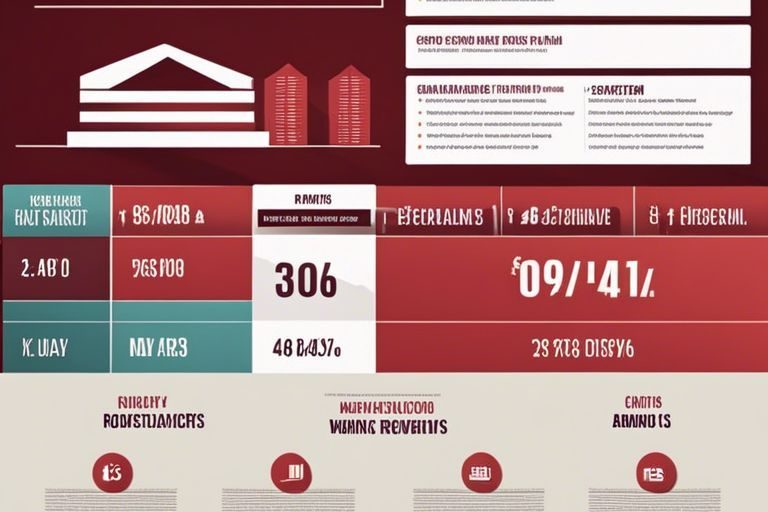Regulatory Compliance in Malta’s Banking Sector

It’s imperative to investigate into the intricate world of regulatory compliance within Malta’s banking sector. Understanding the rules and regulations that govern financial institutions in this European hub is crucial for ensuring a stable and secure banking environment. With a focus on transparency, risk management, and adherence to international standards, Malta’s banking sector stands as a beacon of compliance within the region.
Overview of Malta's Banking Sector
Historical Context and Development
An examination of Malta’s banking sector requires an understanding of its historical context and development. Over the years, the sector has evolved significantly, driven by global economic trends and regulatory changes.
Current Landscape
An analysis of the current banking landscape in Malta reveals a robust and diverse sector, with both local and international banks operating on the island. The sector plays a vital role in supporting Malta’s economy and is continuously adapting to meet the challenges of an evolving global financial environment.
For instance, Malta’s banking sector has seen a rise in digital banking services and a growing focus on compliance and risk management in line with international regulatory standards. This trend underscores the sector’s commitment to maintaining stability and transparency in financial operations.
Key Regulatory Frameworks
The Banking Act
Regulatory compliance in Malta’s banking sector is primarily governed by The Banking Act. This legislation outlines the licensing requirements, capital adequacy ratios, and operational guidelines that banks in Malta must adhere to in order to ensure the stability and integrity of the financial system.
European Union Directives and Regulations
Another crucial component of regulatory compliance in Malta’s banking sector is adherence to European Union Directives and Regulations. These directives cover a wide range of areas including capital requirements, risk management, and consumer protection. Banks operating in Malta must stay up to date with these EU regulations to ensure they remain compliant with international standards and best practices.
Furthermore, the harmonization of regulations across the European Union enhances the efficiency of cross-border banking activities and promotes a level playing field for banks operating within the Union.
Compliance Challenges in the Maltese Context
Anti-Money Laundering (AML) Standards
Any institution operating in the banking sector in Malta must adhere to strict Anti-Money Laundering (AML) standards to prevent illicit financial activities. The country’s regulatory authorities impose stringent requirements on banks to ensure compliance with AML laws and regulations.
Data Protection and Privacy
Compliance with data protection and privacy laws is crucial for banks in Malta. Institutions must safeguard customer data and ensure it is processed securely and transparently. Non-compliance with these regulations can result in severe penalties and reputational damage for banks.
Strategies for Effective Compliance
Technology and Automation
For banks in Malta, leveraging technology and automation tools can be a game-changer in ensuring regulatory compliance. Automated systems can streamline processes, flag potential issues, and reduce the risk of human error. Utilizing advanced software for monitoring transactions and customer data can enhance the efficiency and accuracy of compliance efforts.
Training and Education
With the constantly evolving regulatory landscape, continuous training and education are crucial for banking staff in Malta. Comprehensive programs that cover the latest regulations, compliance protocols, and best practices can equip employees with the knowledge and skills needed to navigate complexities effectively. Regular workshops, seminars, and online courses can help ensure that personnel are up to date and compliant with regulatory requirements.
Strategies that combine the use of technology and automation with ongoing training and education initiatives can significantly enhance the compliance framework of banks in Malta. By investing in these key areas, financial institutions can stay ahead of regulatory changes, mitigate risks, and uphold a culture of compliance across the organization.
To wrap up
With these considerations in mind, regulatory compliance in Malta’s banking sector plays a crucial role in ensuring the stability and integrity of the financial system. By adhering to the country’s robust regulatory framework, banks can protect themselves from legal and reputational risks while fostering trust among customers and investors. Continuous monitoring, training, and collaboration with regulatory authorities are crucial for banks to navigate the evolving regulatory landscape effectively and maintain compliance standards.
FAQs
What is the primary regulatory framework governing Malta’s banking sector?
Malta’s banking sector is primarily governed by The Banking Act, which sets out licensing requirements, capital adequacy ratios, and operational guidelines to ensure financial stability and integrity.
How does Malta’s banking sector address compliance with European Union regulations?
Banks in Malta adhere to European Union Directives and Regulations covering areas such as capital requirements, risk management, and consumer protection, ensuring alignment with international standards.
What are the key compliance challenges faced by banks in Malta?
Banks in Malta face significant challenges in complying with stringent Anti-Money Laundering (AML) standards and ensuring robust data protection and privacy measures.
What strategies can banks in Malta employ for effective regulatory compliance?
Leveraging technology and automation tools, along with continuous training and education programs, are essential strategies for enhancing regulatory compliance in Malta’s banking sector.
Why is regulatory compliance crucial for Malta’s banking sector?
Regulatory compliance ensures stability, transparency, and integrity within Malta’s banking system, safeguarding against legal and reputational risks while building trust with customers and investors.
Recommended Posts

EveryMatrix & beBettor Ensure Safer UK Gambling
July 26, 2024

Oddsgate Secures GLI-33 Certification
July 26, 2024

The Rise of Digital Banking Solutions in Malta
July 24, 2024



